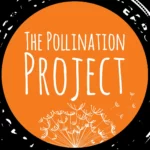One day, Chimwemwe Chitambala heard a knock on her door. She was living in a student hostel, studying business and economics at the University of Zambia. Chimwemwe opened the door, and found a woman selling fruits and vegetables.
These traders, known as “UNZA Veg” in Zambia, are not uncommon. For some people, the story would end here. Chimwemwe would buy some of the produce, or not, and move about her day. But Chimwemwe has always been interested in and curious about the lives of others. She began asking questions.
Where did the young woman get her fruits and vegetables? How many hours each day did she spend selling them? Did she have a family? How was business?
Hearing the story of the young woman, Chimwemwe was struck by her work ethic. This young trader worked sunrise to sunset rushing to deliver vegetables and fruits from local farms, dedicating her whole day to the endeavor without a single day off. Yet despite her incredible diligence and dedication, her business was not flourishing. As Chimwemwe would come to learn in subsequent conversations with other traders, this was hand-to-mouth work. Held back by limited funds, lack of a basic budget, and a huge scale of personal responsibilities, traders like the young woman she met that morning were in a constant state of treading economic water.
Today in Zambia, people under 35 are nearly 40% of the population. The literacy rate is only 55%, yet much lower in women, who are more likely to be employed in informal settings like the ad-hoc sales of fruits and vegetables door-to-door or in the market. Rates of teenage pregnancy, HIV infection, and gender-based violence are on the rise.
Chimwemwe saw herself in the life of the young woman she met that first morning. Like the young woman, Chimwemwe had a zeal and passion to learn, a drive to achieve, and hopes and dreams that mattered to her. What Chimwemwe had that this young woman didn’t were resources, skills, and an educational path. Chimwemwe wrote a concept paper for a project she wanted to put together in response to this need, and turned it into a successful grant application to The Pollination Project.
One year later, Chimwemwe’s project “Embrace Her” offered an initial cohort of 12 young women a microloan, financial literacy education, and business support. Using Pollination Project support, Chimwemwe created a revolving fund that offered women a chance to increase their inventory, which decreased the amount of time they spent going back and forth between farms. She counseled them on keeping daily records of income and expenses, identifying the most profitable lines of business. She taught them how to use mobile money services to establish a daily savings account, and incentivized that savings account growth through the revolving fund.
“Before I met Chimwemwe, I often was in a position that I had no money to order vegetables for my next day of sales,” said Emelia, one of Chimwemwe’s students. “Embrace Her has been so positive for my personal finance and business. The stress of thinking about where to get money for the next vegetable order was cleared with a bit of her support.”
At the conclusion of the first cohort, 100% of the women repaid their initial loan. The project was just concluding its first year when COVID-19 hit. While this was a sad end, the women were better prepared than most for the pandemic because of the savings they had accumulated. This acted as a relief fund for the women, which they used to reinvest in their business and meet basic needs.
In the future, Chimwemwe wants to grow to a point that easily accessible business loans are more readily available, and offered together with financial education and courses in entrepreneurship. She dreams of a young entrepreneurs incubation center that will offer assistance for businesses run by young women and youth in Zambia. And, more broadly, she wants to empower all young people to bridge the gap of financial literacy within ten years.
“My dream is that we all share the chance to improve each other’s lives,” she says. “It isn’t just about not being in a state of dependence. We must also recognize our interdependence.”


![Monica Wang, a graduate of Yantai University in China, founded Xiaobu Vegan to promote veganism in her homeland. Having grown up in Guangxi with little early connection to animals, her perspective changed after moving to Shanghai and working at Plant Based Consulting. Her vegan journey began alongside rescuing two cats and a Japanese Akita, Meng Meng.
Xiaobu Vegan, established in 2020, uses educational videos, restaurant collaborations, and initiatives like the "Vegan Challenge" to advocate for plant-based diets. Supported by The Pollination Project, the organization aims to influence dietary habits and encourage compassion through its growing platform.
Read more on our website👇
[https://thepollinationproject.org/would-you-eat-your-best-friend]
#xbvegan #vegan #veganchina #animaladvocacy #animalrights #compassion #china #heartivism @animalchangemakers](https://thepollinationproject.org/wp-content/plugins/instagram-feed-pro/img/placeholder.png)